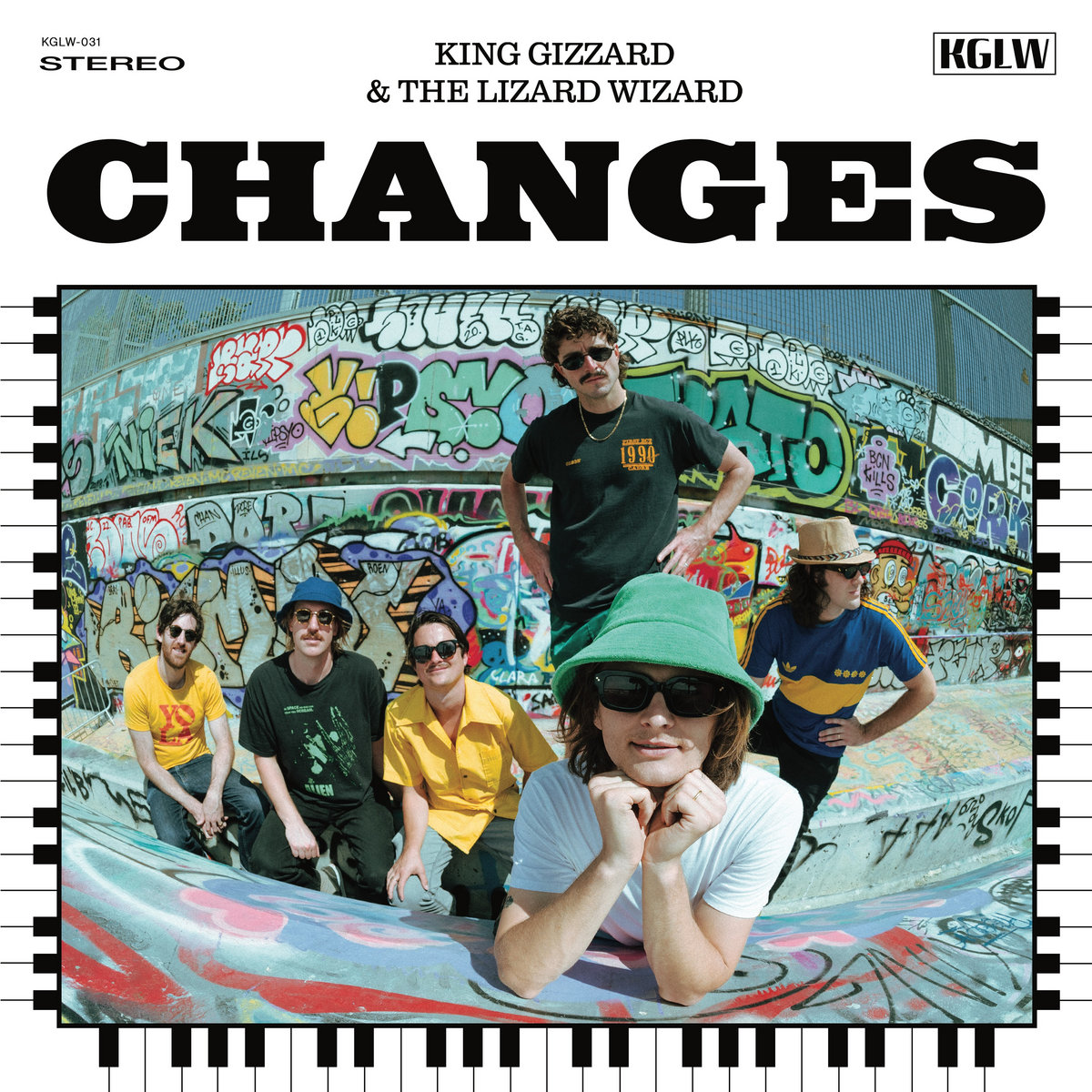King Gizzard & the Lizard Wizard
Changes
KGLW
Can I level with you? When King Gizzard & the Lizard Wizard lay out the music theory concept behind a new album, I often have to take the Aussie kitchen-sink psych-rockers at their word. I can grok the unique character of their microtonal explorations, sure, but when it comes to polyrhythmic prog or jams on the Greek modes, the finer points are lost on me (give me a few years; I’m still getting my minor pentatonic scale positions down). None of that makes it hard to be a Gizz-head, though, and neither does Changes, their 23rd album in 10 years. It’s their jazziest, potentially their most ambitious in theory, and in spite of that, the one I’m most likely to recommend to anybody not yet in the know about the band’s sprawling catalog of the five LPs they’ve released this year.
Changes’ 13-minute title track builds a dynamic overture on electric keys, hi-hat taps, and rushes of guitar, by turns thoughtful and thrilling as it spins out motifs and lyrical concepts through verses sung, half-rapped, and scatted. Then it splinters into a six-song cycle in which, with every chord change, the band bounces between notes from two different scales—D major and F sharp major, per their website—that coil like a harmonic double helix. The full record took five years to finish, essentially a lifetime in Gizz-years; think of it as a more robust take on the jazz fusion of Sketches of Brunswick East, though it also benefits from their more recent experiments, too (as on the driving standout “Gondii,” powered by Butterfly 3000 synths).
Chord changes parallel personal and social changes in the lyrics; change is elusive through cycles of life on the title track (“Is this what we consider changing for the better?”). It’s a source of uninhibited joy on the playful (if insubstantial) “Hate Dancin’.” It’s a destructive force against nature on the fluttery flute-and-keyboard jam “Astroturf,” and on “Exploding Suns,” a cosmic acoustic vision of nuclear armageddon. The abstract idea of change feels a little too slippery and all-encompassing to hang an album on, but the songs mostly stand up on their own, even as recurring melodies and teases string them together in classic Gizzard fashion.
Even I can feel the changes driving the kaleidoscopic scale runs of closer “Short Change,” but aside from the strong songwriting and tireless grooves, I appreciate the spirit of Changes most of all. As clearly and concisely as anything the band has ever put out, it makes expanding your creative horizons sound like a genuine pleasure in a way plenty of stuffier prog- and art-rock releases don’t. For King Gizzard, changing and pushing their artistic limits always seems to mean coming up with new frameworks to iterate fun tunes on top of, and even with this much work under their belts, they still sound like they’re having an absolute blast—still running up the “woo” counter, whatever keys they play in.









